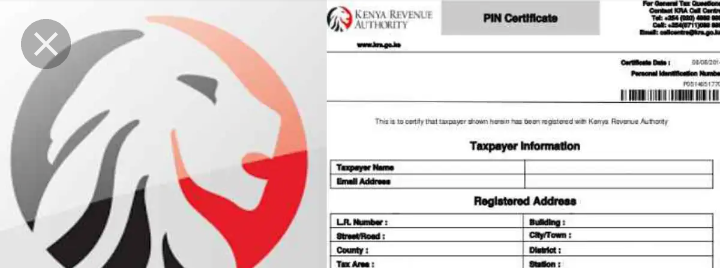
Actions Taken Against You For Not Filing Your Tax Returns In Time.
The Kenya Revenue Authority (KRA) recently announced June 30, 2022, as the last day on which the taxman will be accepting filing of tax returns for the 2021 year of income.
“All annual tax returns for the year 2021 for individuals and for entities with a December year end should be submitted online through the iTax platform on or before 30th June 2022,” reads an excerpt from KRA’s press release.
Now, there are three certainties in life namely death, taxes and a good number of Kenyans scrambling at the very last minute to file their tax returns.
As early as January 2022, KRA bombarded Kenyans with constant reminders to file their tax returns on time. More recently, the tax authority announced that it would extend its daily operating hours to help Kenyans beat the fast-looming deadline.
An online poll carried out by the taxman revealed that 57.4% of respondents were yet to file their 2021 tax returns and that they were looking to do it at the last minute. 42.6% of the respondents stated that they had already filed their returns.
Notably, despite the prevailing Covid-19 pandemic, more than 4.4 million Kenyans filed their 2019 tax returns when the filing period officially closed at midnight on June 30, 2021.
This was a marked improvement from the previous year where only 3.6 million Kenyans filed their tax returns before deadline day.
Placing these figures against at least 19 million Kenyans registered as eligible voters paints a picture of a real gap that the taxman is actively looking to fix.
In line with this, KRA attaches various penalties for individuals or business entities that fail to file their returns by the stipulated deadline day.
Penalties for not filing tax returns on time
The penalty for filing annual tax returns past the stipulated deadline dropped under proposed changes to the law..
The amendment of Tax Procedures Act 2015 (which was assented into law on 15th December 2015 and effected through a legal notice) reduced the late payment interest rate from 2% to 1% per month, providing relief to affected taxpayers.
“Previously, taxes were imposed on all due liabilities without giving credit of withholding tax already paid. The iTax system now imposes a penalty only on unpaid taxes and not on the tax payable,” KRA Commissioner for Domestic Taxes Department Elizabeth Meyo said in 2019.
According to the latest information available on KRA’s official website, Tax offences can attract punitive penalties and interest. These include:
Offence – Failure to deduct PAYE, account for it or to submit a certificate upon request.
Penalty – Whichever is greater of, 25% of the amount of the tax involved or Ksh10,000.
Offence – Failure to deduct or remit Withholding Tax.
Penalty – 10% of the amount of the tax involved, up to a maximum of Ksh1 million.
Offence – Failure to remit Excise Duty or VAT.
Penalty – Whichever is greater of, 5% of the amount of the tax due or Ksh10,000.
Offence – Failure to pay tax on due date.
Penalty – 20% of tax involved is charged.
Offence – Failure to file annual returns by the due date.
Penalty – Additional tax equal to 5% of the normal tax, or Ksh10,000 for Non-Individual Taxpayers.
In the case of any other return- the higher of 5% of the tax payable or Ksh20,000.
It is important to note that the Finance Bill 2021 that is currently before Parliament seeks to review a number of taxation laws.
Under the proposed amendments, individuals filing tax returns face a Ksh100,000 fine for each false or incomplete information presented to KRA as the government intensifies the fight against dodgers.
If approved by Parliament, the new penalties will take effect from July 1, 2021, and come at a time millions of taxpayers are racing to file their tax returns ahead of the deadline.
The proposals come just months after the taxman rolled out a voluntary tax disclosure programme where taxpayers with arrears for the past five years are to get full or partial relief on penalties and interest on the undisclosed taxes.
Faced with missed revenue targets, the taxman has in recent years stepped up the war on tax cheats.
PIN Deregistration
It is also worth noting that in a notice published on May 3, 2021, KRA stated that persons who failed to file their tax returns in the past and in the current financial year will lose their Personal Identification Numbers (PINs) by July 1, 2021.
This effectively means that Kenyans who do not file tax returns by deadline day may not be able to apply for jobs, open bank accounts or register pieces of land among other essential services that require a PIN number.
For companies, schools and self-help groups that have failed to file their tax returns, the owners will not be able to get government services that require PIN numbers.
In line with the above, KRA urged Kenyans to take advantage of the recently launched voluntary tax disclosure programme to avoid stringent penalties.
One of the Tax administration changes read out during the National Budget 2021/2022 directed that an applicant must have a Tax Identification Number (TIN) before a government authority can issue any form of business licence.
During the reading of the budget, Treasury Cabinet Secretary Ukur Yatani, also announced the Reduction of PAYE rate to 8% (from 9%) for the lowest individual tax band.
Tax Evasion and Nil Returns
The Treasury CS also reiterated a new push by the government to root out and punish tax evaders.
Tax evasion is the deliberate or illegal act of not paying and/or underpaying taxes.
According to the Income Tax Act, a person shall be guilty of an offense if he/she, without reasonable cause, makes an incorrect income return by omitting or understating any income which they should have stated.
Here are a few examples of tax evasion.
- Not paying the correct income taxes where a company understates the value of their imported goods.
- Failure to deduct withholding taxes: where KRA appoints entities to withhold tax at the source then remit on time.
- Misstatement of expenses in the sense that a company falsified financial statements or expenses so that they pay less tax.
As for persons who have been filing nil returns, KRA will now embark on a verification exercise to confirm that indeed the taxpayer did not receive any income as claimed in the return.
The tax authority has invested heavily in data analytics which can easily compare the taxpayer’s return against their transactions with third parties. For instance, it’s now a requirement that to operate a bank account, one has to provide a PIN certificate.
Under the Income Tax Act, income includes emoluments from employment, business profits, dividends, interest, disposal of property, natural resource income, and income from gambling.
KRA has powers under the law to compel third parties such as banks, telecommunication companies, insurance companies, betting companies and utility firms to provide data on a taxpayer of interest.
What is Tax Avoidance?
Simply put, tax avoidance is the use of loop-holes in tax laws to minimize tax liability. It is the bending of tax laws without breaking them.
Often, a very thin line exists between tax avoidance and tax evasion.
The national government does not treat tax avoidance lightly, as an international tax office exists within KRA to specifically handle issues relating to both tax avoidance and tax evasion.
According to the Tax Procedures Act (2015), a tax avoidance penalty is twice the amount avoided – a 200% penalty.
